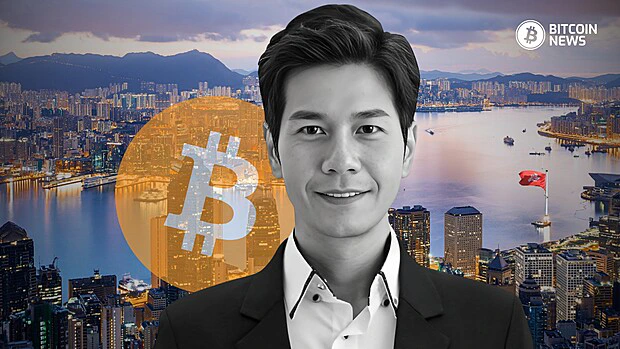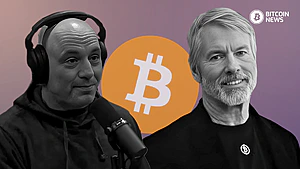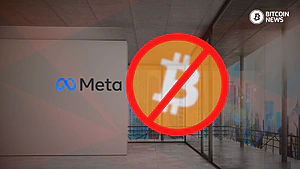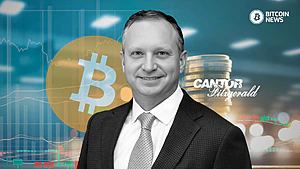In a move that has caught the attention of both the financial and digital asset worlds, Hong Kong Legislative Council member Johnny Ng has proposed that the region consider incorporating bitcoin into its financial reserves.
This initiative, inspired by recent remarks from prominent U.S. political figures, underscores a growing global interest in the digital currency as a strategic asset.
Johnny Ng, a member of Hong Kong’s Legislative Council, recently suggested that Bitcoin could play a crucial role in the region’s financial strategy.
In a tweet, Ng emphasized the increasing global acceptance of Bitcoin, often referred to as “digital gold” due to its technological underpinnings and potential as a hedge against inflation. Ng stated:
“Regarding Bitcoin becoming an official financial reserve for a country or region, I think this is worth considering […] As long as it is compliant, it is worth considering including Bitcoin in strategic financial reserves.”
He promised to discuss the feasibility and opportunities of this initiative with various stakeholders in Hong Kong and to keep the public informed about the progress.
Ng’s proposal was influenced by remarks from former U.S. President Donald Trump at the Bitcoin 2024 conference in Nashville. Trump, who is running for president again, vowed to create a “strategic bitcoin reserve” if elected.
This idea was further supported by U.S. Senator Cynthia Lummis, who plans to introduce legislation to establish a bitcoin reserve, envisioning the U.S. holding one million bitcoin over the next 20 years.
In his tweet, Ng referenced Trump’s speech, highlighting the potential benefits of bitcoin’s inclusion in national reserves. He added:
“The global acceptance of Bitcoin is constantly increasing, and Bitcoin is seen by the public as ‘digital gold’ in the context of its technology.”
The suggestion that Hong Kong could integrate Bitcoin into its financial reserves has significant implications for the market. If implemented, this move could drive up demand for bitcoin, potentially pushing its price higher.
The prospect of a major financial hub like Hong Kong adopting bitcoin as part of its reserves could also set a precedent for other regions and financial institutions to follow suit.
Such a development would signal growing acceptance and legitimacy of Bitcoin on a global scale. Increased institutional interest and investment could lead to higher market stability and confidence, further solidifying Bitcoin’s role as a borderless digital asset.
In a post on X dated July 28, Anthony Pompliano, CEO of Professional Capital Management, suggested that other Presidents might be considering a Bitcoin strategy following comments from Trump and others.

Samson Mow, CEO of JAN3, a Bitcoin technology and development company noted, “The conversations around Bitcoin as a reserve asset have begun.”
On July 28, Louisiana Governor Jeff Landry expressed a similar view in a post on X.
He highlighting that Louisiana is at the forefront of Bitcoin adoption by prohibiting CBDCs and safeguarding self-custody, “We should continue to lead by having a strategic reserve of bitcoin like Donald Trump suggests!”

Dennis Porter, the founder of the Satoshi Action Fund, argued that Bitcoin is the sole solution for the US to address its $34 trillion national debt. However, critics noted that using Bitcoin to pay down the debt would involve spending it, which could negatively impact the markets.
Hong Kong has been making strides to restore its status as a technological hub in the Asia-Pacific region. Last year, the city’s Securities and Futures Commission (SFC) introduced a licensing regime to attract foreign digital asset companies to its market.
Under this regime, companies like HasKey Exchange and OSL have received licenses to offer retail traders the opportunity to buy and sell digital asset, including bitcoin.
In addition to Bitcoin, Hong Kong has approved several Bitcoin-related financial products, including spot Bitcoin ETFs. Recently, CSOP Asset Management introduced a Bitcoin “inverse” ETF, allowing retail investors to short bitcoin.
The region’s financial authorities are also working on a comprehensive regulatory framework for fiat-referenced stablecoin issuers, further demonstrating Hong Kong’s commitment to becoming a leading hub for digital finance and innovation.
Ng has pledged to engage with various stakeholders to explore the feasibility and benefits of incorporating bitcoin into Hong Kong’s financial reserves.
He stated, “I will discuss the feasibility and opportunities of including Bitcoin in financial reserves with different stakeholders in Hong Kong, and will report the situation to everyone in a timely manner”.
While Ng’s proposal has garnered attention, it also raises questions about regulatory compliance and the potential challenges of integrating bitcoin into Hong Kong’s financial system.
Ng acknowledged the importance of thorough research and compliance with existing regulations to ensure the secure and strategic inclusion of bitcoin in the region’s fiscal reserves.
Ng’s initiative comes at a time when Bitcoin is gaining traction worldwide. The decentralized nature of Bitcoin, along with its limited supply, has positioned it as a valuable asset in the eyes of many investors.
Ng believes that the increasing global awareness of Bitcoin makes it a crucial element in the discourse on digital assets and their integration into traditional financial systems.
The proposal to include Bitcoin in Hong Kong’s financial reserves is still in its early stages. The outcome of this initiative could have far-reaching implications for both Hong Kong and the broader digital asset market.
As the world watches Hong Kong’s next moves, the city’s approach to Bitcoin and digital finance could serve as a model for other regions considering similar strategies.
The combination of increased legitimacy, institutional interest, and ecosystem growth could potentially catalyze significant upward momentum for Bitcoin as the world’s most scarce asset.










